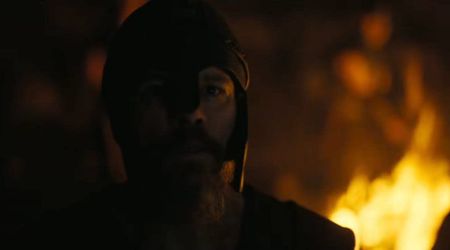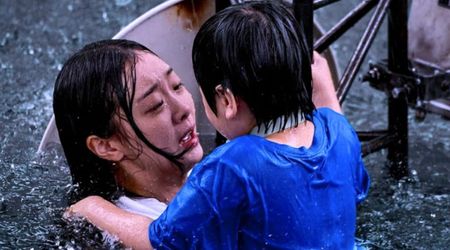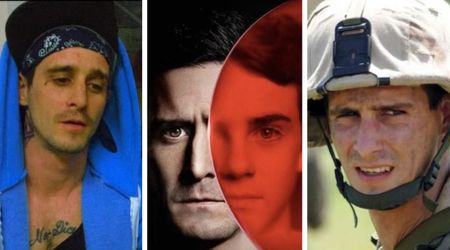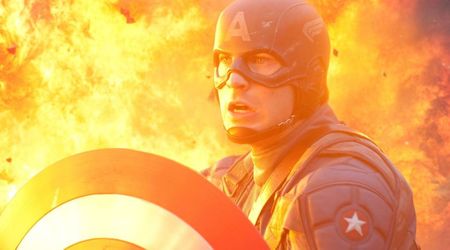The Hidden Angle | '1917' may be a brilliantly shot piece but its portrayal of death is a lot more fascinating

'1917' is a brilliantly shot film and a lot has been said about it being a "one-shot" feature-length movie. Does that alone make the film worthy of a Best Picture Oscar nomination? The tale of two soldiers being given an assignment that would save the day is honestly not the most original idea, so the way to capture audiences' attention was to make the film so technically brilliant that in its wake, the film leaves only awe. So I personally was not as impressed by the story as I was with the way a story was captured. However, there was something about the film that I found quite fascinating and that is the portrayal of death.
'1917' is set during the First World War; to be specific, on April 6, 1917. The film begins with Lance Corporal Blake (Dean-Charles Chapman) picking Lance Corporal Schofield (George Mackay) for an assignment he knows nothing about. He thinks it's going to be something easy, instead, he is given the responsibility of giving a message to the troop at the frontline who are ready to attack the Germans. The fellow British troop has to be informed that the German's are not on the run from their frontline, but are making a strategic retreat to turn the British Push (the attack) to their advantage. It is a trap that will end 1,600 lives which also includes that of Blake's brother.
The two soldiers set across the No Man's Land together and come upon the German Frontline to find it abandoned and it is during this journey that I found myself fascinated by the way Mendes and fellow writer Krysty Wilson-Cairns has treated death in the war film. The stars of the frame definitely are Schofield and Blake, but in the background and in passing you see a number of dead bodies. It starts from the trenches itself where the body of a dead sergeant is laid out and if a fellow officer in a uniform didn't mention it, the mass there could have easily been mistaken for a sack of mud. The fact that the body is laid down there is not disrespectful but comes more with the acceptance that death is not something that one must dwell upon.

Following this, we see the two soldiers crossing the No Man's Land and that is filled with corpses on all sides. Nameless, abandoned soldiers are left to rot as the war continued around them. All of this is really fleeting, and there is no pause for one to ponder on how all of it is set up to add to the mood of the film, which is less morbid and more somber.
The one moment that has stayed with me after having experienced Mendes directorial is when the two soldiers -- Schofield and Blake -- are speaking about the medal that Schofield swapped with a French man for a bottle of wine. In an otherwise tense film that draws too much attention to how it was shot rather than what was being shot, this moment really reels you in. This conversation is not really complete. If Blake and Schoefield had had more time perhaps, we might have got to understand the hate that Schoefield felt about the ribbon that any other soldier seemed to want. However, Blake's clock is ticking.
Even as the film makes a grandstand with its "one-shot" cinematic POV, it is more the treatment of death in that caught my attention. Like when we see Blake go down -- and as unexpected -- Schofield comes to terms with it very quickly. That doesn't mean it was easy, but Schofield has seen too many being killed to be perturbed by the sudden death of his fellow officer, a friend. He pats Blake down and takes with him whatever is necessary, whatever could be useful and just like the many nameless faces that we saw until that point, Blake is also abandoned. No one around him has enough time to grieve his loss at that moment. That would probably come much later, most probably in the form of a nightmare. But for now, he is deserted.
After this, Schofield finds help from officers of a different battalion who help him travel a little further, cover more distance to reach the Colonel who is in charge of the imminent attack of the Germans, on time. The soldiers watched Schofield deal with the body, so they understand the place he is in at that moment. So when the one in charge of this troop tells Schoefield "It doesn't do well to dwell" we can look back at the portrayal of death at large in the film and see exactly this being reflected. Turns out it is a recurring theme in the film.
'1917' is also more a chapter out of a book than a complete narrative. We see one day and a night that turns into another day portrayed in the lives of two soldiers, with brilliance for sure, but it still is just a chapter. A tumultuous chapter with treacherous twists and turns, but there is so much that is left unsaid. Be it the conversation about Schofield's ribbon which he won for surviving a battle, or the one where Blake recalls picking cherries at his mother's orchard, there is more to these moments.
'1917' was nominated in 10 categories including Cinematography, Directing, Makeup and Hairstyling, Music (Original Score), Best Picture, Production Design, Sound Editing, Sound Mixing, Visual Effects, Writing (Original Screenplay).
‘The Hidden Angle’ is a weekly column examining narratives, frames and sounds that add value to movies and shows but are not part of conversations surrounding their success or failure. The column will be published Fridays and we start with the Oscar 2020 hopefuls.










